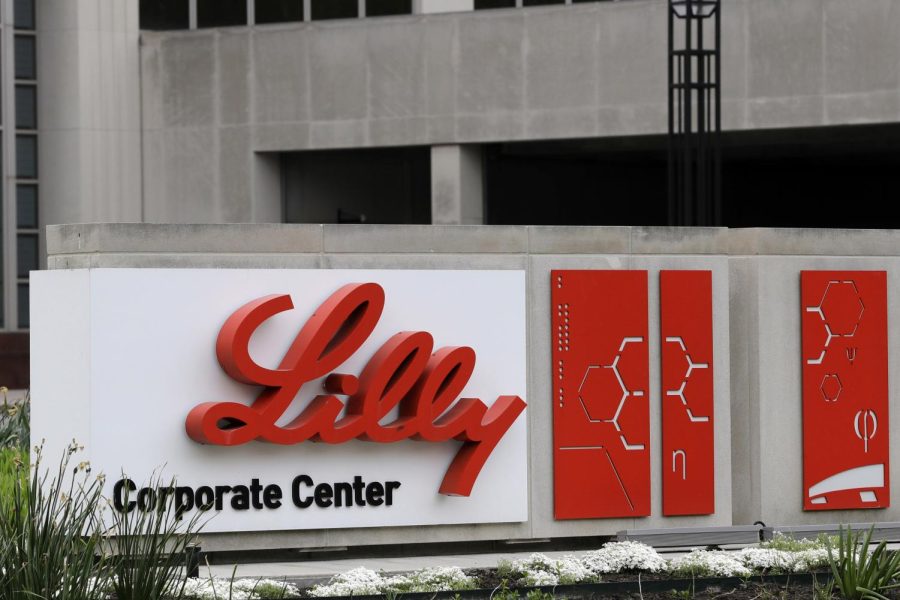Editorial | Pharmaceutical companies should follow Eli Lilly’s lead in cutting out-of-pocket medication prices
This April 26, 2017, file photo shows the Eli Lilly & Co. corporate headquarters in Indianapolis.
March 3, 2023
The pharmaceutical company Eli Lilly cut the cost of insulin and created a cap for out-of-pocket expenses for insulin. The drug had risen in price from $21, when it was first put on the market in 1996, to $274.70 today. The proposed price would cap customers’ out-of-pocket costs $35 a month.
Pharmaceutical companies have made the price of drugs inaccessible to most Americans. Insulin has gotten so expensive that one in six Americans with diabetes can not afford this life-saving drug — this is not how it should be. Other companies should follow Eli Lilly’s lead and reduce the prices of their life-saving drugs.
Americans spend an average of $1200 a year on prescription drugs — something no other country does. This is a large and unnecessary financial burden on people who need to have their medicine to live their lives. At the same time, the pharmaceutical industry earned $550 billion in revenue in 2021. This is an absurd amount of money going to companies that purposely jack up the prices of life-saving medication for their own benefit. Americans have gone into medical debt while these companies profit off of them.
30 million Americans are uninsured, meaning that they have to pay out-of-pocket for medicine if they need it. This means that if they were uninsured and needed to get insulin, they would shell out nearly $300 every month just to stay alive. While $35 a month is still steep for some, lowering the prices will help those who couldn’t afford it before be able to afford it now.
The financial burdens don’t just hurt the pockets of those who need the drugs — they can even allow people to do dangerous things in order to stretch the amount of insulin they have. Insulin rationing is extremely dangerous and sometimes fatal — those who go without it can have medical complications or die. More than 16.5% of those who use insulin have to ration it, typically because of its exuberant cost. Just because someone can’t afford to pay hundreds of dollars every month does not mean that they should have to risk their lives by stretching the insulin.
While lowering the cost of insulin is a good first step, this is not the only issue that needs to get addressed by pharmaceutical companies. Some experts worry that if only insulin is reduced in price, this could lead to a rise in the price of other diabetes drugs that may work better for patients than insulin exclusively. Other pharmaceutical companies need to also place a cap on other drugs, not only for diabetes but for all diseases that need different kinds of medication to help people live.
Eli Lilly changed their prices because of bipartisan pressure showing how much Americans from all sides of the political spectrum care about this issue. Pharmaceuticals should have fair prices and not drain people of their money just because they need medicine to survive — and companies should focus on people, not profits.



